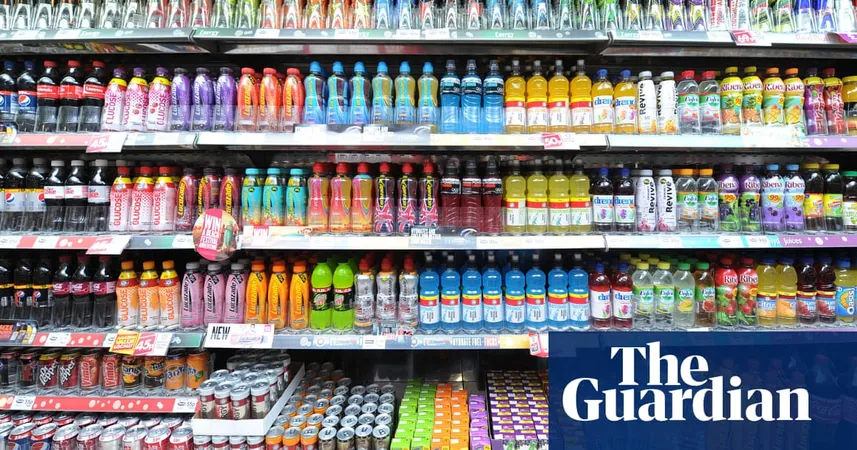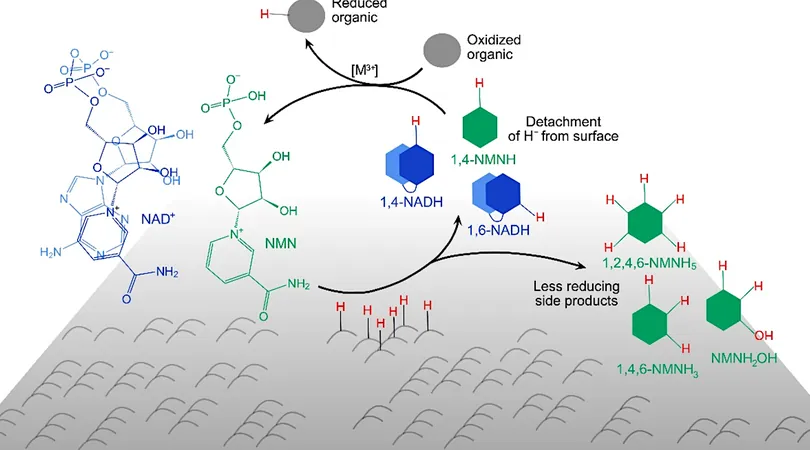
Sugary Drinks Linked to Over 3 Million New Diabetes and Heart Disease Cases Annually – Shocking New Study Reveals
2025-01-06
Author: Yu
Groundbreaking Study Results
A groundbreaking study published in *Nature Medicine* has found that sugary drinks are responsible for more than 2.2 million new diabetes cases and 1.1 million new heart disease cases each year globally. This alarming figure underscores a significant global health crisis, particularly in low- and middle-income countries.
Health Inequalities and Regional Statistics
The analysis highlights stark health inequalities, revealing that in regions like Latin America and the Caribbean, sugary beverages accounted for nearly 24% of new diabetes cases in 2020. Sub-Saharan Africa displayed even more distressing statistics, where sugary drinks contributed to over 21% of new diabetes cases and 11% of new heart disease cases from 1990 to 2020.
Countries such as Colombia, Mexico, and South Africa are facing particularly severe impacts. In Colombia alone, sugary beverages were linked to nearly half (48%) of all new diabetes diagnoses. Mexico is not far behind, with one-third of new diabetes cases attributable to sugary drinks. In South Africa, these drinks accounted for 27.6% of new diabetes cases and contributed to 14.6% of heart disease cases.
Health Impacts of Sugary Drinks
Experts explain that sugary drinks are rapidly digested, causing a quick spike in blood sugar with minimal nutritional benefits. Regular consumption leads to metabolic disorders, including obesity, insulin resistance, type 2 diabetes, and cardiovascular issues.
Marketing and Vulnerable Populations
Dariush Mozaffarian, a study author and director at Tufts University’s Food is Medicine Institute, warns, “Sugar-sweetened beverages are heavily marketed in low- and middle-income nations. These communities are not only consuming harmful products, but they are also less equipped to address the severe long-term health impacts.”
Diabetes affects approximately 830 million people globally, with a significant majority in low- and middle-income countries. Cardiovascular diseases remain the leading cause of death around the world, responsible for approximately 17.9 million fatalities yearly, with more than three-quarters occurring in economically disadvantaged nations.
Influencer Culture and Youth Trends
Dr. Catherine Kanari, a non-communicable disease specialist with Amref Health Africa in Kenya, points out the troubling trend driven by “influencer culture” on social media. Young people in urban areas are being targeted by influencers promoting sugary drinks, further exacerbating the crisis amid a lack of adequate nutritional education in schools. She warns that the rising tide of diabetes cases could overwhelm already strained health care systems.
Call for Action and Preventive Measures
The researchers urge for preventive measures, such as public health campaigns, tighter regulation of sugary drink advertising, and the implementation of taxes on these beverages. In 2014, Mexico, which has one of the world’s highest sugary drink consumption rates, enacted a tax on these beverages in an effort to combat the crisis.
Mozaffarian emphasizes, “We need to do much more, particularly in Latin America and Africa, where sugar consumption is high and the health consequences are dire. It’s a global call to action to tackle sugar-sweetened beverage consumption for the sake of our health and wellbeing as a species.”
Conclusion and Future Steps
With the stakes so high, the question remains: what measures will effectively curb this sugar epidemic before it claims even more lives?





 Brasil (PT)
Brasil (PT)
 Canada (EN)
Canada (EN)
 Chile (ES)
Chile (ES)
 Česko (CS)
Česko (CS)
 대한민국 (KO)
대한민국 (KO)
 España (ES)
España (ES)
 France (FR)
France (FR)
 Hong Kong (EN)
Hong Kong (EN)
 Italia (IT)
Italia (IT)
 日本 (JA)
日本 (JA)
 Magyarország (HU)
Magyarország (HU)
 Norge (NO)
Norge (NO)
 Polska (PL)
Polska (PL)
 Schweiz (DE)
Schweiz (DE)
 Singapore (EN)
Singapore (EN)
 Sverige (SV)
Sverige (SV)
 Suomi (FI)
Suomi (FI)
 Türkiye (TR)
Türkiye (TR)
 الإمارات العربية المتحدة (AR)
الإمارات العربية المتحدة (AR)